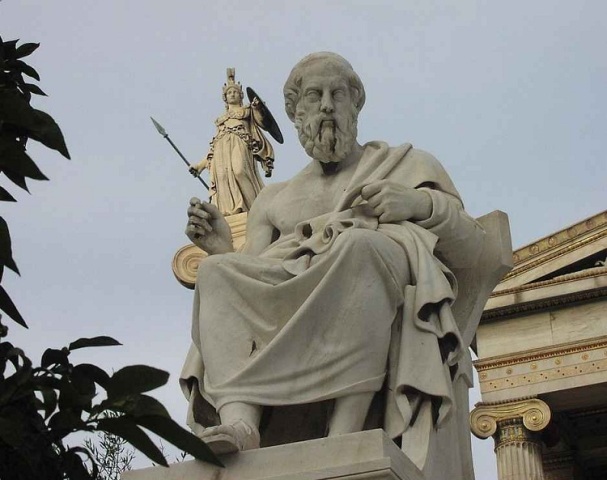Athens, the capital of Greece, boasts of a rich history and cultural legacy. Explore the fun and interesting facts about Athens, provided in this article.
Facts About Athens
Athens, the capital of Greece, holds the distinction of being one of the oldest cities of the world. Apart from being the economic, financial, industrial, political and cultural center of Greece, the city is also rapidly becoming a leading business centre in the European Union. The rich heritage and cultural legacy of Athens, evident in the form of its ancient monuments and works of art, is what drives tourists to the city. Here, you will find a beautiful amalgam of various architectural styles, ranging from Greco-Roman and Neo-Classical to Contemporary. The history of this city dates back to about 3,000 years and led to the introduction of Western civilization contributing various key elements such as culture, education and athletics to the society. The prominent monuments of Athens are Parthenon and Acropolis which displayed best of Greek architecture. In case you want to explore more about the city, make use of the information given below.

Image: By Sébastien Bertrand from Paris, France (Flickr) [CC-BY-2.0 (http://creativecommons.org/licenses/by/2.0)], via Wikimedia Commons
Fast Facts
Country: Greece
Continent: Europe
Location: 37°58′N 23°43′E
Established In: 3000 BC
Population: 3,074,160 (as of 2011)
Area: 412km2
Fun & Interesting Facts about Athens
- Along with being the capital of Greece, Athens is also the capital of the Attica Periphery and the Athens Prefecture.
- Athens is the largest city of Greece, apart from being one of the oldest cities of the world.
- The Athens Larger Urban Zone (LUZ) is said to be the 8th most populated LUZ in the European Union.
- The first modern Olympic Games were held in Athens, in the year 1896. In 2004, Athens again played host to Olympic Games.
- Athens became the first Cultural Capital of Europe in 1985.
- The evidence of the first settlement around the Acropolis dates back to 3000 BC.
- Athens is widely referred to as the ‘Cradle of Western civilization’ and the ‘Birthplace of Democracy’.
- Being continuously inhabited for at least 3,000 years, Athens boasts of being one of the cities with the longest history in the world.
- Athens became the leading city of the ancient Greece, in the first millennium BC.
- It was in 1834 that Athens succeeded Nafplion, the city that was provisional capital during the Greek War of Independence ending in 1832, as the capital of Greece.
- The Greater Athens area stands divided into 55 municipalities, the largest being the Municipality of Athens or Dimos Athinaion.
- Athens is one of the world's main centres of archaeological research.
- Omonia Square is the oldest square in Athens.
- Syntagma Square, adjacent to Parliament and a number of significant hotels, is the central square of Athens.
- Athens was the birthplace of many prominent philosophers, writers and politicians of the ancient world, including Socrates, Pericles & Sophocles.
- The city of Athens was considered significant when the state of Greece was taken into consideration. It was known for its large size, power and also the beautiful structures, shops which people loved to visit.
- The people of Athens did not believe in the concept of having a king to rule them. They thought that a group of people making laws and orders would create more problems than usual and so they did not have a king.
- The people of Athens held meetings on hill slopes in which any citizen could participate and give their opinion regarding the problems and also can advise the government. This was referred as an ‘Assembly’ and had to consist of 6,000 citizens or more for every session.
- In case the citizens of Athens disliked any politician, they would write his name on ostraka (broken pieces of pottery).
- The Athenians ruled an area named ‘Attica’ which contained a rich reservoir of resources, valuable elements such as silver, marble and lead.
- The biggest navy of Greece was that of Athens.
- People from across the world and from Greece came into the city as it was extremely beautiful and had a great scope for trade and research.
- The major attraction of Athens was Parthenon, a temple which was situated on Acropolis, a rocky hill. Inside this temple was the statue of Athena, the goddess who protects the city.
See also
More from iloveindia.com
- Home Remedies | Ayurveda | Vastu | Yoga | Feng Shui | Tattoos | Fitness | Garden | Nutrition | Parenting | Bikes | Cars | Baby Care | Indian Weddings | Festivals | Party ideas | Horoscope 2015 | Pets | Finance | Figures of Speech | Hotels in India : Delhi | Hyderabad | Chennai | Mumbai | Kolkata | Bangalore | Ahmedabad | Jaipur
- Contact Us Careers Disclaimer Privacy Policy Advertise With Us Lifestyle Sitemap Copyright iloveindia.com. All Rights Reserved.







